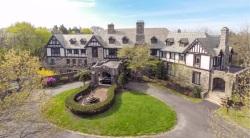
Parenting or educating a gifted child can be challenging, and one can sometimes feel alone in helping an exceptional student reach his or her potential while also working with asynchronous development, a struggle to fit in with peers, or even a simultaneous learning, physical, or attention-related disability. It’s easy to focus intently on the child’s gift and neglect reacting to the child holistically. However, having a “whole child” approach can be beneficial to the child as well as the parent or educator. When paying attention to the entirety of the student while nurturing the many academic aspects of gifted education, all parties may find themselves more at ease.
Many people may not consider that gifted children could need any kind of assistance at all because their intelligence, skills, and abilities are so marked. However, approaching giftedness and its constantly changing definition as more than “smart” is a positive development for not only the gifted child as his or her bright, average, or struggling peers. It can be freeing for parents and educators as well, reminding them that this student’s giftedness can affect every facet of a child’s life. If that child is to become a successful adult, it’s important to avoid stereotypes and understand how giftedness actually operates.
Giftedness Affects More Than Classroom and Educational Behaviors
Those familiar with gifted students who are also twice exceptional understand that gifted does not necessarily mean “big SAT scores.” On the contrary, if as student is gifted athletically, emotionally, or in ways which cannot be measured by standard methods, he or she may be difficult to identify, especially if he or she isn’t encouraged at home or is suffering from attention issues or anxiety.
Students who possess strong, conformist educational behaviors are “good at school” and will likely also become good at college entrance exams, good at higher gifted education, and good at being employees. They are bright, fit in well, have nice social skills, and show strong self-control. However, this does not mean that the child is gifted. A gifted child might not perform optimally or not well at all in a traditional classroom structure.
Gifted children are gifted due to the wiring of their brains. While strong academic performance undeniably starts in the home and it’s quite difficult for children to achieve without involved parents, it’s impossible to “make” a gifted child. The way in which a gifted person’s brain functions is simply different from those who are average or even bright, and these traits spill over into the way he or she functions socially, workwise, and emotionally. They often don’t have anything to do with academics at all.
Sensitivity and Environmental Reactions
One way in which giftedness might manifest itself is in how a child reacts to his or her environment. This might prove especially frustrating for early gifted education teachers as well parents, who are usually the first to experience what might seem an outsized reaction to sounds, lights, smells, and textures which other children take in stride.
It might seem that the child is “being difficult,” picky, or immature. But if he or she is honestly made nauseated by the texture of a fish dinner, the sight of congealed fat, or the smell of eucalyptus in the next room, it’s probable he or she isn’t just “looking for attention.” Highly sensitive children simply cannot stand “itchy tags,” ribbed materials against their skin, or slightly tight shoes.
The child is reacting negatively because he or she is overwhelmed by what is happening in his or her nervous system. Since gifted children can also be HSP, they are on alert at all times to their surroundings, even if they don’t want to be. While they can be perspective, empathetic, and artistic, these children can also easily become overwhelmed, cry easily, or withdraw.
Parenting or Educating a Gifted, Highly Sensitive Child
Becoming angry or frustrated with the child is an understandable reaction, but it won’t help him or her cope any easier; in fact, snapping “Get over it! Behave more like your sister—she’s not complaining!” will make it worse. The child will likely feel isolated and ashamed, not to mention resentful.
Nor is it a good idea to run ahead of the child, smoothing over every possible inedible vegetable or scratchy athletic uniform. Instead, helping the student learn self-sufficient coping mechanisms and to state his or her needs or preferences without whining will increase maturity, social skills, and self-esteem. Even when they learn coping skills, high sensitivity is a challenge for the gifted.
The “Whole Child” in Gifted Education Programs
Unfortunately, many school gifted programs, especially in schools which struggle to meet even the basic needs of their students, still tend to classify children on the basis of their academic achievement, and neglect the possibility they are highly sensitive or simply have a different reaction to their surroundings than average children.
Children who struggle with a disruptive home life, who do not receive needed medication, who go undiagnosed, or who fight with attention issues are often overlooked. Lacking self-advocacy skills with no adult to step in and speak for them, these children suffer just as much as those with undiagnosed or untreated learning disabilities.
Social Development
Another area in which gifted children are not treated holistically is in the area of their social development. The burnishing of these skills are often left to their parents, or overlooked because the child might communicate so well with adults. However, especially at certain stages of development, children desperately seek at least some form of approval from and communion with their peers. Unfortunately, gifted children are often bullied or honestly prefer to be alone. Their peers might see them as arrogant or bossy.
While many schools are hugely focused on anti-bullying programs, assisting a gifted child with peer-to-peer communication often falls by the wayside. Including social skills in a gifted program is an efficient and useful way to not only help students lean into their traits, but to also develop deeper relationships with those who think differently than they do.






